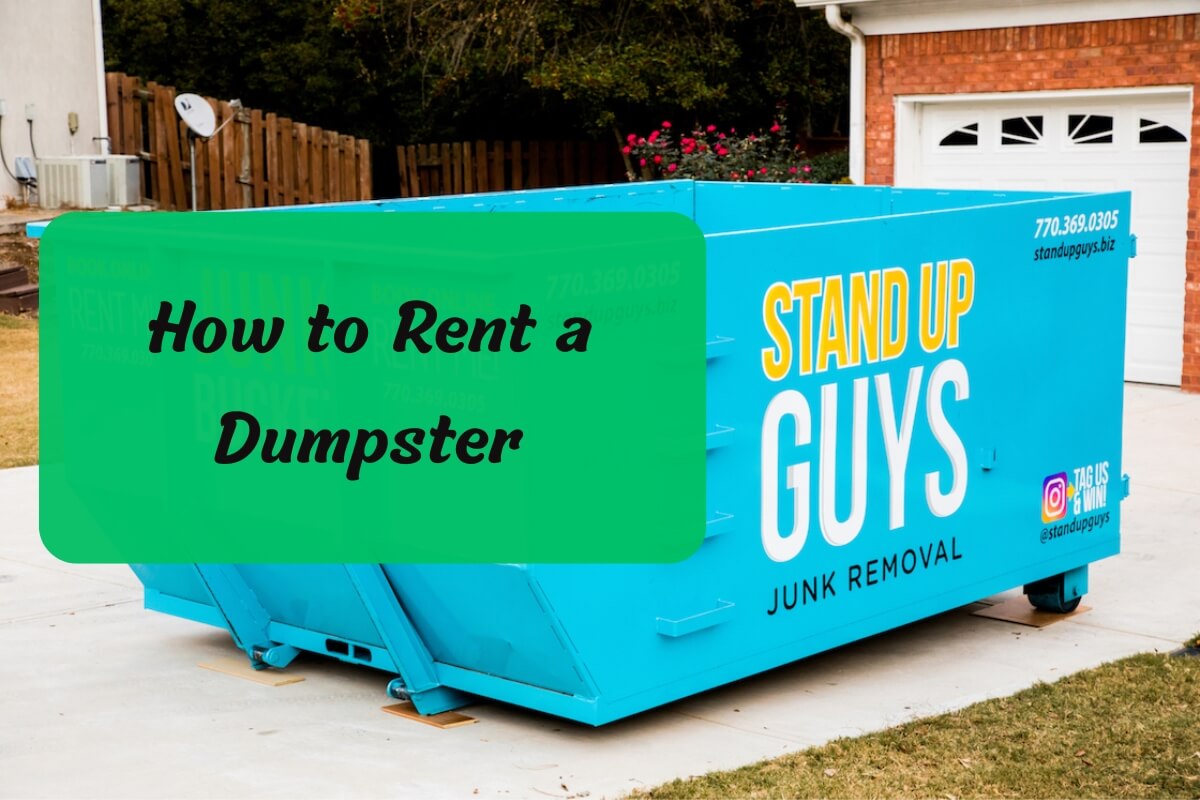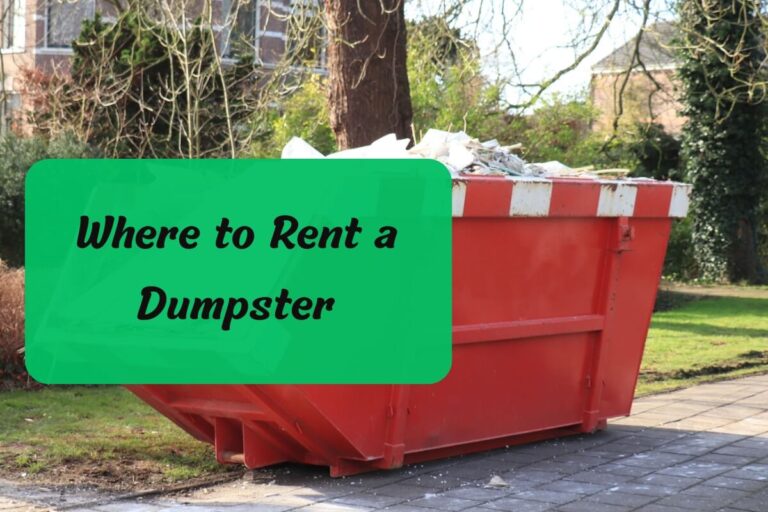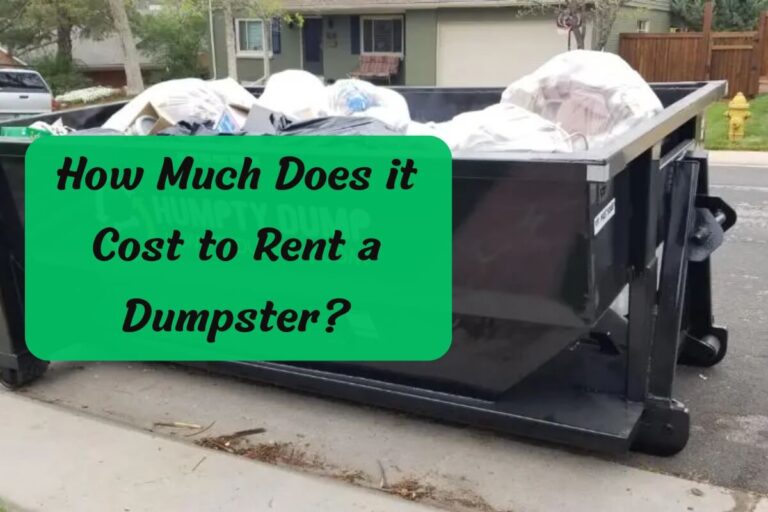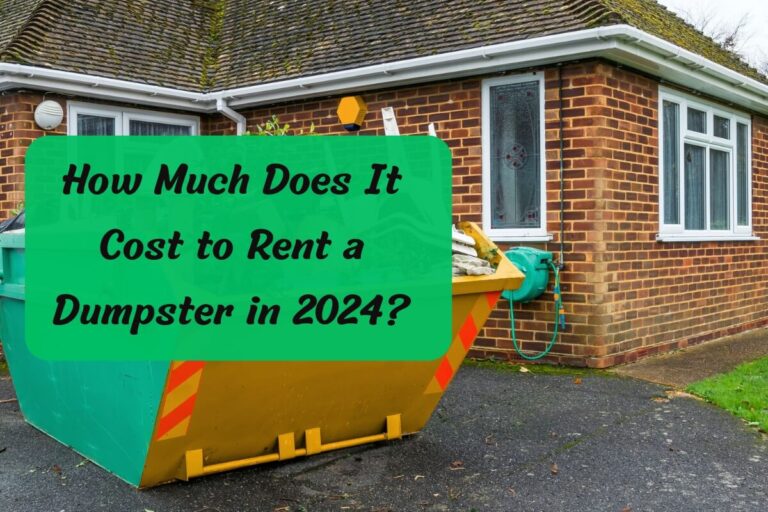
Have a big project like home renovations or cleanouts? Renting a dumpster makes disposing of tons of waste easy. This guide explains how to rent one, from figuring out what size you need to picking the best rental company.
The key questions we’ll answer include:
- How do I determine the appropriate dumpster size for my project?
- What factors affect the cost of renting a dumpster?
- How do I prepare for dumpster delivery and pick-up?
- What items can and cannot go into a dumpster?
- How can I maximize the space in my rented dumpster?
By the end of this guide, you’ll have a thorough understanding of how to rent a dumpster and ensure a smooth and successful waste disposal process.
Determine Your Dumpster Rental Needs
The first step in renting a dumpster is to assess your specific needs. Consider the type and amount of waste or debris you’ll be disposing of. This will help you determine the appropriate dumpster size for your project.
Dumpster sizes are typically measured in cubic yards, with common options ranging from 10 to 40 cubic yards. Here’s a general guide to help you choose the right size:
- Small Cleanouts or Renovations: For small projects like a single-room cleanout or minor renovation, a 10 or 15 cubic yard dumpster may be sufficient.
- Medium-Sized Projects: If you’re tackling a multi-room cleanout, a larger renovation, or a mid-sized construction project, consider a 20 or 30 cubic yard dumpster.
- Major Renovations or Demolitions: For extensive renovations, demolitions, or large-scale construction projects, a 30 or 40 cubic yard dumpster may be necessary.
In addition to the type and volume of waste, consider the location where you plan to place the dumpster. Ensure you have enough space to accommodate the dumpster on your property without obstructing traffic or violating any local regulations.
Find a Reliable Dumpster Rental Company
With your dumpster rental needs in mind, it’s time to find a reliable dumpster rental company in your area. Start by researching local companies and checking customer reviews and ratings. Look for companies with a track record of prompt and professional service, as well as transparent pricing.
When contacting potential rental companies, be prepared to provide details about your project, such as the type and amount of waste, the desired rental duration, and the location where the dumpster will be placed. This information will help the company provide you with an accurate quote and ensure they can meet your specific needs.
Understanding Dumpster Rental Costs
The cost of renting a dumpster can vary significantly depending on several factors, including:
- Dumpster Size: Larger dumpsters typically cost more than smaller ones.
- Rental Duration: Some companies charge a flat rate for a set rental period, while others charge a daily or weekly rate.
- Location: Costs may be higher in certain areas due to factors like transportation distances or local regulations.
- Weight Limits: Many companies impose weight limits and charge additional fees for exceeding those limits.
- Permit Fees: Depending on your location, you may need to obtain a permit to place the dumpster on your property or on the street, which can add to the overall cost.
When requesting quotes, be sure to ask about any additional fees or charges that may apply, such as delivery and pickup fees, environmental fees, or taxes. Reputable companies should provide transparent and all-inclusive pricing upfront, without any hidden costs.
Preparing for Dumpster Delivery
Once you’ve chosen a dumpster rental company, it’s important to prepare for the delivery of your dumpster. Determine the best location on your property to place the dumpster, ensuring it’s accessible and won’t obstruct traffic or pose any safety hazards.
If you plan to place the dumpster on the street or any public property, check with your local authorities to obtain the necessary permits. Some cities or municipalities require permits for dumpster placement, and failing to comply can result in fines or penalties.
Additionally, consider protecting the surface where the dumpster will be placed. Many rental companies recommend placing plywood or a similar material underneath the dumpster to prevent damage to your driveway, lawn, or other surfaces.
What Can and Can’t Go in a Dumpster?
When renting a dumpster, it’s crucial to understand what items are accepted and what items are prohibited. Most dumpster rental companies have specific guidelines regarding the types of materials they allow in their dumpsters.
Generally, dumpsters can accommodate various types of waste, including:
- Construction and Demolition Debris: Wood, drywall, insulation, roofing materials, and other construction waste.
- Household Waste: Furniture, appliances, clothing, and other non-hazardous household items.
- Yard Waste: Branches, leaves, grass clippings, and other organic materials (check with your rental company for specific guidelines).
However, there are certain items that are typically prohibited from being placed in dumpsters, such as:
- Hazardous Materials: Chemicals, paints, solvents, gasoline, and other hazardous substances.
- Electronics: Televisions, computers, and other electronic devices may require special disposal methods.
- Tires: Many dumpster rental companies do not accept tires due to disposal regulations.
- Batteries: Both household and automotive batteries are usually prohibited.
Be sure to check with your dumpster rental company for their specific guidelines and restrictions. Failure to comply with these guidelines may result in additional fees or penalties.
Maximizing Space in Your Dumpster Rental
To make the most of your dumpster rental and avoid the need for additional rentals or trips to the landfill, it’s important to maximize the available space. Here are some tips for efficiently loading and organizing debris in your dumpster:
- Break Down Large Items: Disassemble furniture, appliances, or other large items to create a more compact fit within the dumpster.
- Load Strategically: Place heavier items like concrete or bricks at the bottom of the dumpster, and lighter items like wood or drywall on top.
- Flatten Boxes and Packaging: Break down cardboard boxes and flatten any packaging materials to create more space.
- Distribute Weight Evenly: Avoid piling all the weight on one side of the dumpster, as this can cause it to become unstable or tip over.
- Respect Weight Limits: Be mindful of the weight limits imposed by the rental company, and avoid overfilling the dumpster with excessively heavy materials.
By following these tips, you can ensure that your rented dumpster is utilized efficiently, potentially saving you money and hassle in the long run.
Dumpster Rental Duration and Pickup
Most dumpster rental companies offer flexible rental periods, typically ranging from a few days to several weeks. When ordering your dumpster, inquire about the standard rental duration and any additional charges for extending the rental period.
As you approach the end of your rental agreement, the company will likely send reminders or prompts to schedule the pickup of the dumpster. Once you’ve finished loading the dumpster and are ready for pickup, simply contact the company to arrange for the removal of the dumpster from your property.
Follow the rental company’s guidelines to avoid extra fees. Overfilling or exceeding the weight limit may result in additional charges.
Choosing the Right Dumpster Rental Company
With so many dumpster rental companies to choose from, it can be challenging to determine which one is the best fit for your needs. When selecting a dumpster rental provider, consider the following factors:
- Customer Service: Look for a company with a reputation for excellent customer service, responsiveness, and clear communication.
- Pricing Transparency: Choose a company that provides upfront and all-inclusive pricing, without any hidden fees or surprise charges.
- Reliability and Punctuality: Ensure the company has a track record of prompt and reliable delivery and pickup services.
- Additional Services: Some companies may offer additional services like environmental waste disposal, recycling options, or on-site personnel to assist with loading.
Don’t hesitate to ask for references or read online reviews to get a better understanding of the company’s service quality and customer satisfaction.
In Short..
Renting a dumpster is a crucial step in ensuring a smooth and successful home renovation, cleanout, or construction project. By following the guidelines outlined in this comprehensive guide, you’ll be well-equipped to determine your dumpster rental needs, find a reliable rental company, understand the associated costs, prepare for dumpster delivery and pickup, and maximize the use of your rented dumpster.
Remember, planning ahead and being mindful of the guidelines set by your rental company is key to a stress-free dumpster rental experience. Take the time to assess your project requirements, research your options, and choose a reputable rental provider that offers transparent pricing and excellent customer service.
With the right dumpster rental strategy in place, you can streamline the waste disposal process, ensuring your project runs smoothly and efficiently while minimizing the environmental impact. Don’t hesitate to ask questions or seek clarification from your rental company if you have any concerns or doubts throughout the process.
By following the steps outlined in this guide and making an informed decision, you’ll be well on your way to a successful project, free from the hassle and inconvenience of managing waste and debris on your own. Embrace the convenience and efficiency of renting a dumpster, and enjoy the peace of mind that comes with a clean and organized workspace.





